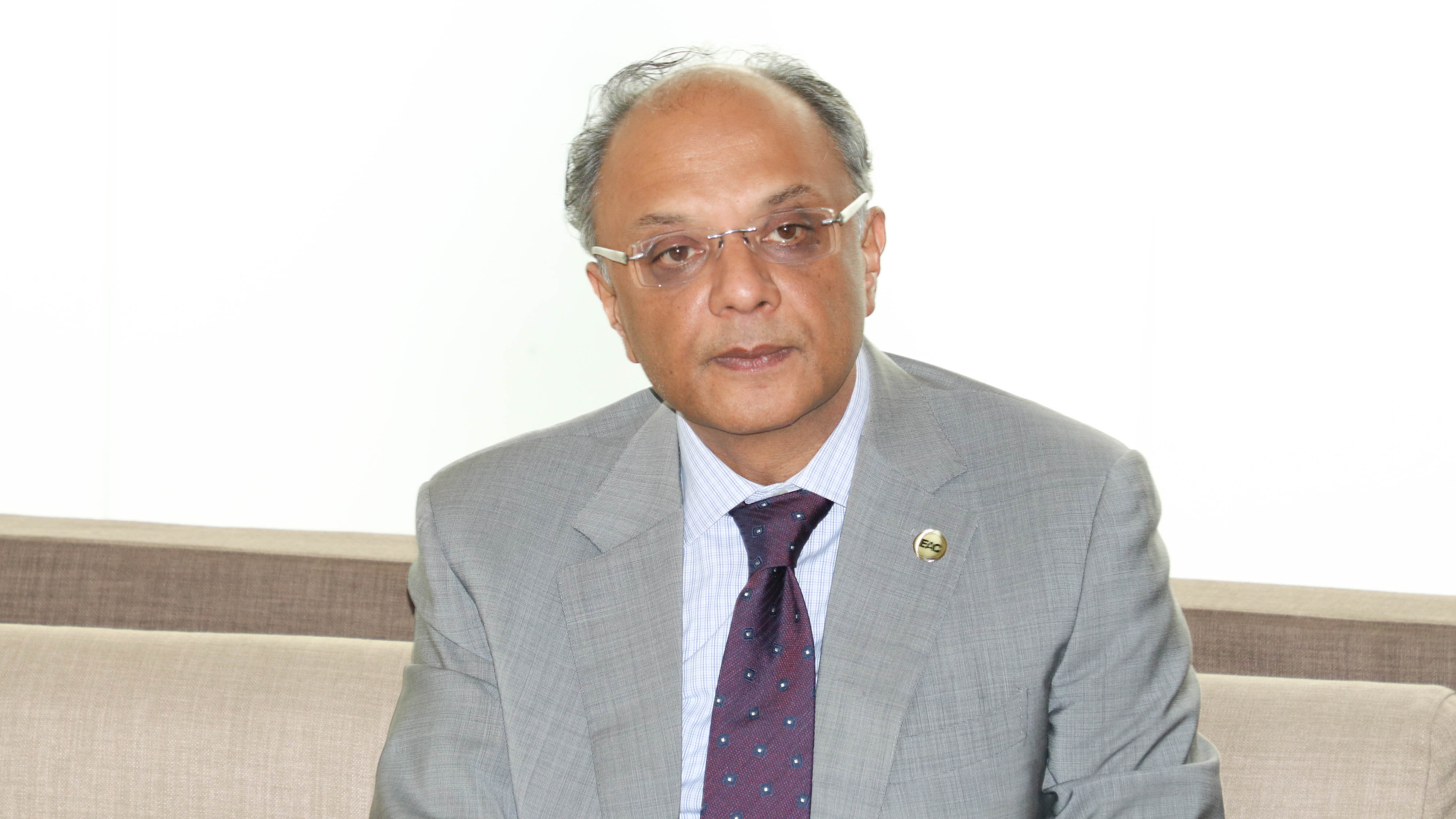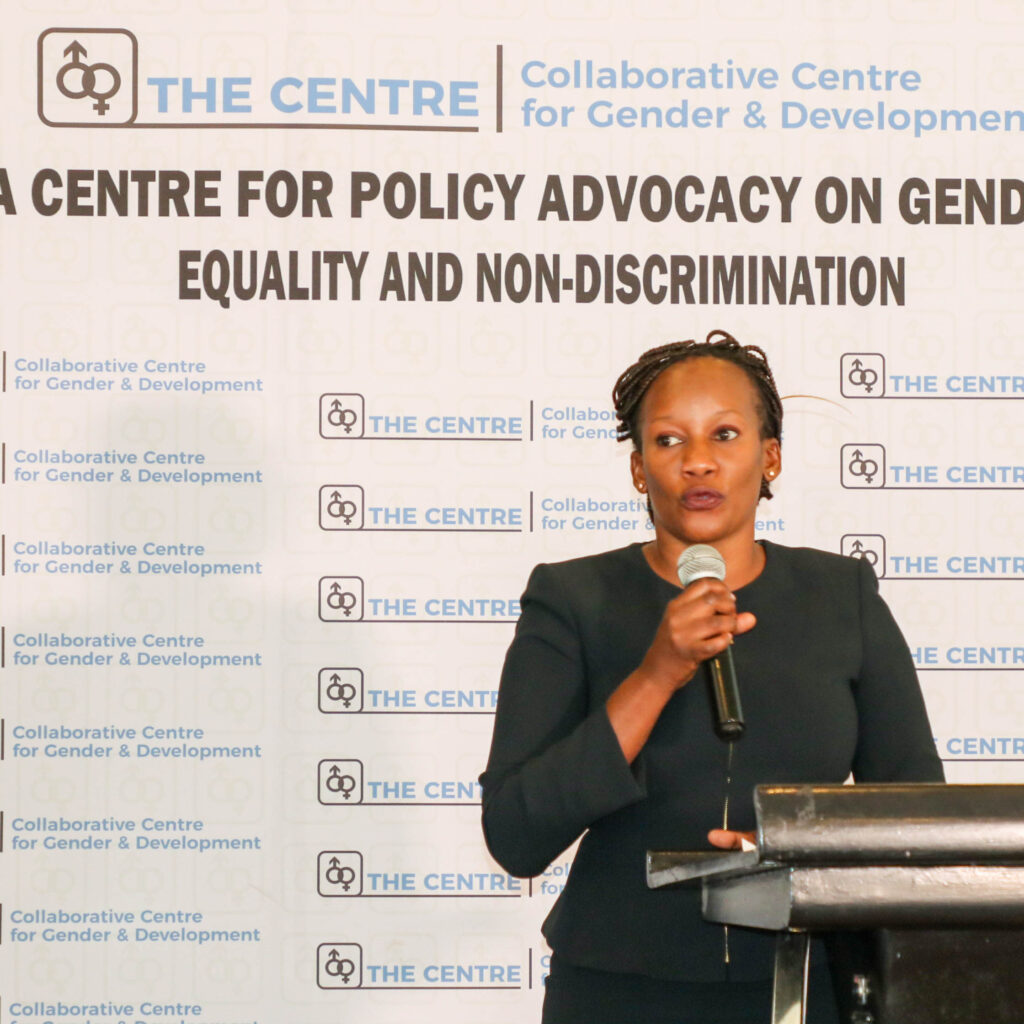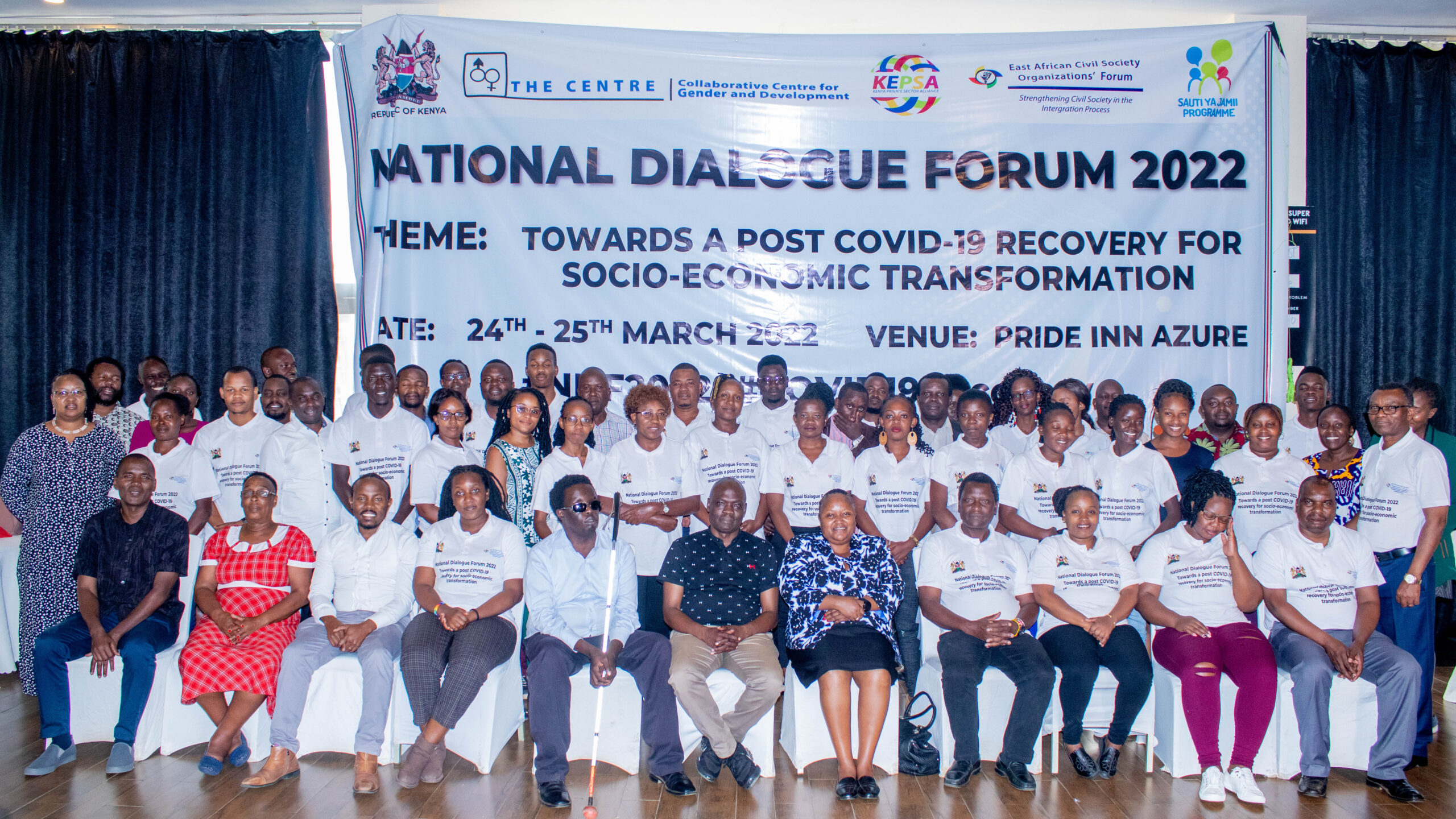In gearing up for the 7th East Africa Community Secretary General’s Forum under the theme, “Towards a post-COVID-19 recovery for Socio-economic transformation”. Kenya through the Ministry of East African Community and Regional Development convened Kenya’s National Dialogue Forum (NDF) between 24th and 25th March 2022.
While addressing the stakeholders, the PS. State Department for East African Community, Dr. Kevit Desai noted that the NDF provides a platform where issues affecting the EAC citizen are discussed and fast-tracked to the annual Secretary General’s Forums. Adding that through Consultative Dialogue Framework (CDF) a lot has been accomplished such as the inclusion of other professionals in accounting, architecture, veterinary, surgeons, land surveyors and advocates who have all been included in the EAC integration agenda.

The PS also said through the EAC integration process they have witnessed harmonization of the education curriculum including the development of rules and regulations guiding the conduct of examination, and certification in the EAC education institutions.
Dr. Desai lauded the efforts of private sector organizations in advocating and helping achieve a business and economic environment through evidence-based policy advocacy leading to the harmonization of trade presentation and regulatory frameworks. Further, they have also helped in the harmonization of standard products and realization of free movement of factors of production including addressing the trade barriers to cross-border women traders and micro and small enterprises.
He said that NDF offers the stakeholders an opportunity to celebrate some of the successful outcomes of the EAC integration process. He urged them to reflect on the commitments under CDF and develop a scorecard that would remind the policy makers where is as far as the EAC integration agenda is concerned.
In his remarks, the Chair of the National Dialogue Committee (NDC), Mr. Masheti Masinjila noted that the CDF sets up the protocol for continuous and systematic dialogues between the CSOs, PSOs and other interested groups – the youth, PWDs, political parties and professional associations.
According to Masheti, after the break of the old EAC, it was decided that the new EAC will be a people-centered and driven community. Meaning if the seven heads of EAC partner states disagree, their disagreements cannot lead to the fall of the community.
The Chair pointed out that the discussions emanating from the forum are intended to lay the ground for different kinds of policies for the government.
“Government works through policies and laws – they need policies to inform their action plans and at these kinds of meetings lays the ground for different kinds of policies,” said Masheti.
He added that they will lobby at the regional level to carry over the outcomes of the meetings to the 7th SG’s Forum which will be held in Nairobi, Kenya.
He also acknowledged the support the dialogue process has been receiving from ‘Kenyan best donors’ particularly Trade Mark East Africa, Ford Foundation, and FAWE- Kenya whom he said have always supported the dialogue processes.
“We appreciate the support we have always received from the ‘Kenyan best donors’ who understand and appreciate the dialogue process and availing funds for these functions,” said the NDC Chair.
Also present was Ms. Linda Ochiel, Ford Foundation Program Officer in the Eastern Africa region who said that the Foundation supports regional mechanisms such as the EAC. She added that in the Eastern Africa region they focus on two key issues – corruption and protection of civic space.

“We support regional mechanism because the government is at the core of the things the foundation is very keen on,” she said.
Adding: “To have a regional mechanism essentially means that the civil societies and the public would have an alternative mechanism which they can use to hold the government accountable on governance, democracy, and human rights issues.”
She said the Foundation is keen to ensure that there are resources available at the regional level to support initiatives to ensure that the regional mechanisms have sufficient resources to be able to fulfill their mandates.
Others present included representatives from Ministries and State Departments/Agencies; East African Civil Society Organizations’ Forum (EACSOF); Disability Sausage; University of Nairobi Women Economic Empowerment Hub (UON WEE Hub); Africa Youth Trust, Horn of Africa Youth Network, Collaborative Centre for Gender and Development (CCGD), Transparency International Kenya (TIK), CUTs, International Institute of Legislative Affairs (IILA), East Africa Tax Governance Network (EATGN) Eastern Africa Child Rights Network (EACRN) among others.
The stakeholders deliberated on various national issues papers including Re- focusing on anti-corruption efforts to reduce gender-based and other inequalities; Domestic resource mobilization in EAC – Illicit financial flows in the extractives sector in the EAC; Removing barriers to free movement of goods, services, and persons through digital trade; Proposing adoption of regional policy intervention for regulating trans fats per World Health Organisation global agenda; Double Taxation Agreements (DTA) Leveraging on youth demographics – Youth Peace and Security; The socio-economic effects of COVID – 19 on PWDs; COVID-19 and human trafficking: The socio-economic etiology of human trafficking; Accelerating COVID-19 recovery and resilience through Gender Responsive Budgeting in East Africa; COVID-19 and Sexual Reproductive Health Rights (SRHR) of girls and young women; Why we should avoid checking boxing in peace and conflict: Experience of Persons with Disabilities.
Some of the key resolutions included:
- Develop a policy framework to guide regional trade to address the lack of harmonized rules of digitization.
- Implementation of Common Market Protocol through a harmonized taxation policy.
- Digitization of tax systems across the region for ease of reference on the trial record.
- Create an enabling environment for the realization of socio-economic rights as enshrined in Constitution and EAC Treaty.
- Review of the law to ensure petty offenses are not custodial within partner states.
- Increase Budget allocation IEBC to enable them to hold PWDs responsive elections.
- Protection of vulnerable groups such as PwDs, youth, women, and children


